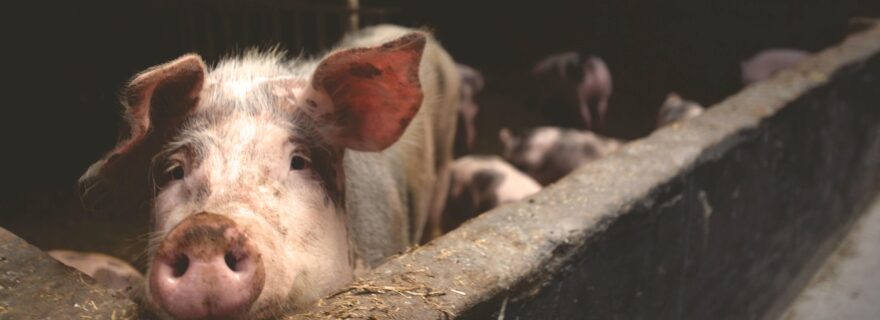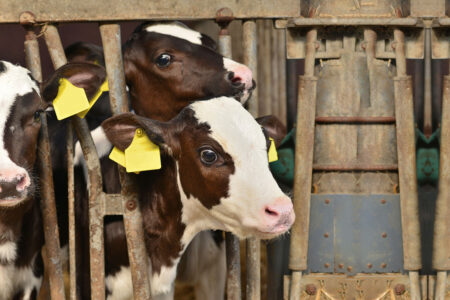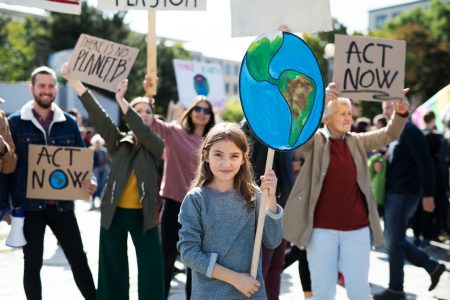Fighting climate change with kindness
We should eat less meat to reduce climate change. Recognition of similarities between us and other animals can help us to achieve just that. More effortlessly – out of kindness.
Thou shalt and thou shalt not. To avoid the negative consequences of climate change, we are told to limit the activities that increase CO2 levels in the air. Use the train instead of fossil-dependent cars, buy second hand clothes, fly less, switch to an electric car, and eat less meat. Meat production is one of the main drivers of climate change. Since growing plants has a smaller environmental impact, people are encouraged to replace hamburgers with plant-based steaks. However, meat consumption remains consistently high in developed countries (such as the USA), and is even skyrocketing in developing countries such as India or China. Preaching about eating less meat to reduce environmental footprint clearly is not working. We need something else.
Farm animals experience pain
Meat does not grow on trees. Compared to cars, airplanes, and clothes, hamburgers come from living animals. Animals with rich social interactions, who recognize each other in a herd. Animals who, like us, care for their offspring and require space and other environmental conditions to meet their normal physiological needs. And animals – who just like us humans – experience physical pain and psychological distress when these needs are compromised to produce a hamburger. Needs that will inevitably be compromised more and more in a world with a rapidly growing human population, where everyone wants to have meat for dinner and for the lowest price possible.
Humans are sensitive to the suffering of others…
We humans do care and are sensitive to the suffering of others. There are multiple examples of how people put their own wellbeing and even life at risk for the sake of the other. From firemen who sacrifice their life to rescue a stranger, to parents who give up their night’s sleep to provide sufficient care to their newborn. In the lab, individuals were even willing to pay more, and performed cognitive tasks better to avoid another person receiving a stressful electric shock than to avoid receiving it themselves. Caring for others and sensitivity to each other’s fear has even been proposed as a mechanism underlying the evolution of our species. But we do also care for other species we are accustomed to. Walking the dog, sacrificing travel plans because of the guinea pig, and spending money on food or vet visits for the cat are just a few examples of altruistic behaviour with generally more benefits for the animal that for the care-taker.
…but more for some than the others
Humans are selectively prosocial. We care more for those we know and are more familiar with. We are more prosocial towards family members, close relatives, and friends than towards strangers. Evolutionarily speaking, caring for those we are close to and sticking together could have survival benefits, as trusting strangers could be dangerous and lead to unnecessary risks. We are more sensitive to harm to someone we are familiar with than to someone who is not part of our pack. This bias toward our own ‘kind’ can lead to exploitation and prejudice against those who are less like us, which can manifest itself as racism and discrimination. This selective prosociality could also explain why we care more for our own dog, whom we know and share our happy moments with, than for pigs on an intensive farm that we never get to see.
And yet the two share so many similarities. Pigs – like dogs – have social skills and can recognize the others in their group. They perform equally well as dogs in many cognitive tasks such as learning and remembering items associated with rewards. And most importantly – they show emotions and can feel pain – as measured by their bodily and facial expressions in response to stressful situations, and by physiological measures, such as cortisol increase in their blood. In fact, many bodily, physiological, and hormonal expressions of stress in humans are present in farm animals in their daily lives on intensive farms.
In a world where you can eat anything, be kind
Current meat industry can only be justified if we dehumanize animals. Approaching the issue from the CO2 perspective does the same. It places animals in the same category as fossil fuels. But, unlike fossil fuels, animals are like us. Re-humanizing animals might expose the atrocity of the meat industry and make us want to eat less meat. Effortlessly – not because we have to, but as an act of kindness. This speaks to our emotion instead of our reason, which is a much more powerful motivator.





